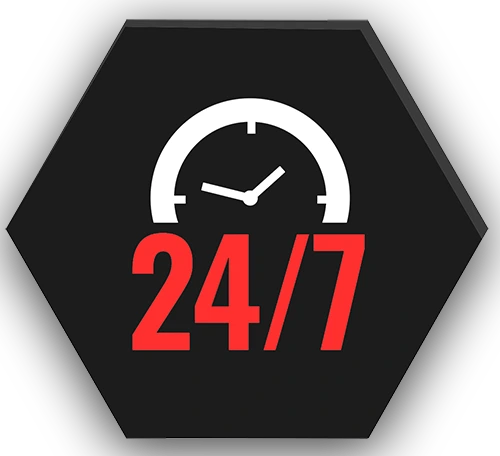July in West Valley City can bring some real heat, and when temperatures climb, homeowners count on their AC systems to keep things comfortable indoors. The last thing anyone wants is for the air conditioning to struggle or stop working altogether right when it’s needed most. That’s why simple, routine maintenance each week can go a long way in helping your AC unit run smoothly through the summer season.
A lot of cooling problems start small but get worse over time when overlooked. Stuffy rooms, inconsistent cooling, or high energy bills are often the result of clogged filters, dirty units, or basic parts wearing out. The good news is that you don’t need to wait until there’s an issue to take action. With just a few easy steps every week, West Valley City homeowners can help extend the life of their AC systems and reduce the chances of breakdowns during the hottest months.
Check and Replace Air Filters
One of the most common causes of weak airflow and rising energy use is a dirty air filter. When the filter becomes clogged with dust and debris, it limits how much air the AC can pull in and push out. This puts strain on the system and can lead to reduced performance or overheating.
To keep your AC working well, it’s best to check your air filter every week during the summer. If your home is especially dusty or you have pets, you might need to swap it out more often.
Here’s a simple way to do it:
1. Turn off the AC unit before opening the filter compartment.
2. Locate the main air return vent or the indoor unit, usually where the filter is housed.
3. Slide the old filter out and check for buildup. If it’s dark gray or packed with dust, it’s time to replace it.
4. Insert a new filter with arrows pointing in the direction of airflow.
5. Close the compartment securely and turn the AC back on.
Clean air filters help improve airflow, keep your energy use in check, and support better air quality inside your home. If you’re unsure what type or size of filter you need, check the old one for a model number before heading to the store.
Inspect the Thermostat
Your thermostat is the command center for your AC. If something is off here, even a well-maintained system can start acting up. For example, if the thermostat is set incorrectly or has low batteries, your system might cycle on and off too frequently or not work at all.
Start by checking the current settings:
– Is the thermostat set to “cool” and not “fan” or “heat”?
– Is the target temperature set lower than the current indoor temperature?
– Is the fan mode set to “auto” rather than “on”?
If these settings look correct but your home still feels uncomfortable, the thermostat might be reading temperatures inaccurately. This could mean it’s time for a recalibration or replacement. Make sure the device is level and not blocked by curtains, furniture, or direct sunlight, as those can affect its ability to read temperatures properly.
Changing the batteries is another simple task. Most thermostats that aren’t hardwired run on AA or AAA batteries and need to be replaced once or twice a year. If the display is flickering or blank, replacing the batteries is a fast and effective fix.
By checking the thermostat weekly, you can avoid one of the most overlooked causes of cooling issues—incorrect settings or worn-out batteries. Regular checks help keep your settings accurate all summer long.
Clear Away Debris from the Outdoor Unit
The outdoor unit plays an important role in how well your AC cools your home. If it’s blocked or surrounded by overgrown grass, fallen leaves, or yard clippings, it can’t operate efficiently. That added restriction makes your system work harder than it should, which can shorten its life and increase your energy bills.
Even during a hot West Valley City summer, outdoor debris builds up fast. Weekly checks around the outdoor unit help prevent small obstructions from becoming big problems. Look for the following each time:
– Trim any grass, shrubs, or plants growing too close to the unit, keeping at least 2 feet of space around all sides.
– Sweep away twigs, leaves, or mulch that has gathered around the base.
– Check the fan cover for any nests, branches, or items stuck in or around the grill.
– Avoid stacking anything like tools or hoses on or against the unit.
Keeping the outdoor unit clean allows it to release heat more efficiently. Even setting aside just 10 minutes a week helps make sure airflow isn’t blocked and performance stays consistent.
Make Sure the Condensate Drain Is Working
Another overlooked feature of your AC system is the condensate drain. This line removes moisture collected from the air during the cooling process. If the drain gets backed up, you might notice puddles near the unit, damp smells indoors, or even water damage around walls or ceilings.
Most AC systems have a PVC pipe that runs from the indoor unit to a drainage point. To keep it working properly:
– Check the area around the indoor unit or drip pan for signs of standing water.
– Use a flashlight to inspect the drain opening for any slime, mold, or clogs.
– If you don’t see water draining during use, there might be a blockage.
Condensate lines often get clogged with dirt and growth over time. Trying to clear it out yourself could push the clog further in. If you notice a problem or smell something off, it’s time to have our professionals take a look.
Look Over Electrical Connections Every Week
The electrical components in your AC system help regulate everything from power flow to temperature changes. Connecting and re-connecting systems each cooling cycle puts wear on these parts, and weak connections can result in system failure or serious performance issues.
Do a simple weekly visual check:
– Look around both indoor and outdoor units for exposed wires.
– Check for signs of damage, like burn marks or corroded connectors.
– Keep an ear out for buzzing or humming sounds that happen outside of regular operation.
Never touch wires or open panels, even if you believe the power is off. These parts can carry a strong charge that poses risk. If something looks off, smells like burning, or you hear unusual noises, contact our technicians right away. Taking care of electrical issues now helps avoid major repairs later.
Consistent Maintenance Keeps Homes Cool
Maintaining your AC system in West Valley City doesn’t require a major time commitment. Carving out a few minutes weekly to check items like the filters, thermostat, outdoor unit, condensate drain, and electrical connections can make a noticeable difference in how well your system runs.
Even small habits like clearing blocked vents or replacing a dusty filter improve how your AC handles the summer heat. These steps give your system a break, reduce wear and tear, and make it more likely you’ll get through the season without interruptions. And if you do notice something that seems unusual, our professionals can spot and fix small problems before they turn into something bigger.
Routine maintenance means fewer emergency repairs, less stress during heatwaves, and a more comfortable home. Taking small actions consistently helps keep your AC running as it should. For dependable AC maintenance in West Valley City, support from trusted experts can keep that cool air flowing all season.
Regular upkeep can make a big difference during the hot West Valley City summer, and Jones Heating & Air Conditioning knows that addressing small issues early helps keep your home consistently cool. Learn more about AC maintenance in West Valley Cityto ensure your system operates efficiently and avoids unexpected problems. For a quick estimate or to book a service visit, please contact us today.




